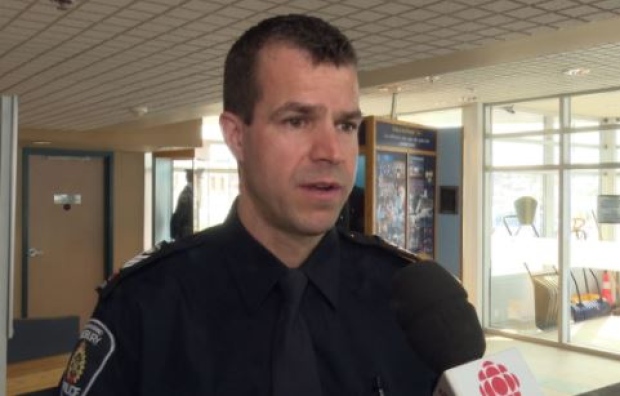Judge rules Charter rights were violated during 2016 arrest

(Yvon Theriault/Radio-Canada)
Zacharie Tessier was arrested back in July 2016 with three times the legal limit of alcohol in his blood.
Though he can speak English, Tessier, who was 26-years-old at the time, repeatedly asked to be served in French throughout his arrest.
“When I’m scared or stressed, I find it easier to communicate in French,” said Tessier in an interview with Radio-Canada this week.
Repeated requests
Tessier was driving home late on July 9, 2016, after spending a night with family.
He was pulled over by police at about 3:30 a.m. In his verdict, Guay noted that Tessier kept asking to have his rights read to him in French up until his release at around 10:30 a.m., seven hours after he was breathalyzed and arrested.
Guay stated that an officer on-site was able to speak French, but refused to do so and continued to communicate in English with Tessier.
“[Tessier’s] repeated requests to be spoken to in French] continued well into the arrest process, and demonstrate that the accused depends on the French language,” stated Guay.
“His request to be served by a francophone officer to translate his release documents show that, even when his freedom was compromised, the accused preferred to communicate in French.”
The judge said the process violated section 10(b) of the Canadian Charter of Rights and Freedoms, which states that, “Everyone has the right on arrest or detention […] to retain and instruct counsel without delay and to be informed of that right.”
The Greater Sudbury Police Service did not directly comment on the incident.

Greater Sudbury Police Service Staff Sergeant Marc Brunette says its officers make every effort to communicate in the language residents prefer. (Radio-Canada)
Brunette added the GSPS recognizes it serves a population that uses the two official languages and that it makes “every effort” to communicate with residents in the language they prefer.
About a quarter of the Greater Sudbury Police Service’s 260 officers speak French.
People won’t be happy
Gilles LeVasseur, a law professor at the University of Ottawa, says it came down to a question of reasonability.
“Police administration must, when it is capable and has the means to do so, offer service in both languages, and it must be done within a reasonable delay,” notes LeVasseur.
He believes it could create an interesting precedent for future similar cases.

Gilles LeVasseur is a law professor at the University of Ottawa (Radio-Canada)
Roger Lepage is a lawyer at the Regina-based firm, Miller Thomson, and has worked on cases involving francophone minorities and their rights. He says he’s seen similar decisions rendered in the past.
“The Constitution is in place to protect minorities. It’s not there to protect the majority,” says Lepage. “I can understand why the judge came to his decision, and I can understand why many people won’t be happy with it.”
With files from Joël Ashak/Radio-Canada
Source: CBC News
